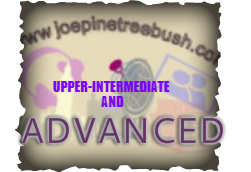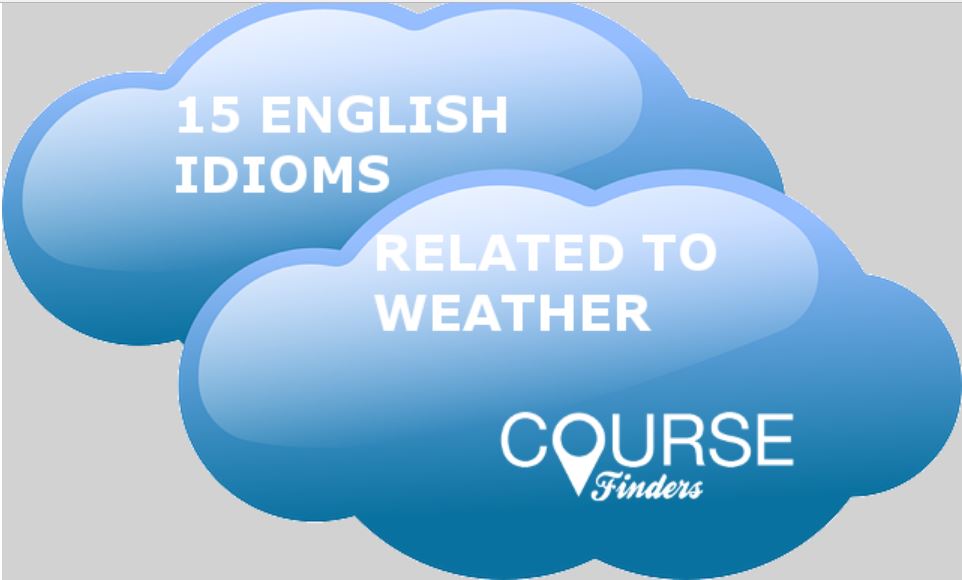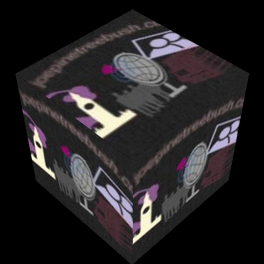Vocabulary Review
Here you will be able to revise the vocabulary of your level and some assorted vocabulary for all levels.
Revise Intermediate Vocabulary
Intermediate |
Upper-intermediate Vocabulary |
- General Vocabulary. Learn the difference. (all levels)
Vocabulary causes confusion in any language. Here you will find some interesting vocabulary you could use properly and some useful differences in meaning.
Wear, dress, put on
|
Learn about the difference between these words on BBC Learning English or on Youtube:
|
|
Weather
|
Find a good summary of the most common idioms related to weather on Coursefinder.com
|
If you want to try a quiz on more difficult idioms, check these one by my colleague Dale. You can also download the worksheet from ISL collective but you will need to sign up there.
|
Travel
Difference in the use of the following words: trip, voyage, travel, journey and tour.
http://www.learn-english-today.com/lessons/lesson_contents/travel-trip-journey.htm
http://www.learn-english-today.com/lessons/lesson_contents/travel-trip-journey.htm
Bribery, extortion and blackmail
These words are frequently confused. This is the best explanation I found on the net:
http://answers.yahoo.com/question/index?qid=20100407123054AAJVnrQ
http://answers.yahoo.com/question/index?qid=20100407123054AAJVnrQ
`specially´ or `especially´
Similar but not the same. Visit http://englishplus.com/grammar/00000287.htm to know all about it.
Expressions with different prepositions
`on/in time´ / `at/in the end´
To get a clear explanation go to http://www.britishcouncil.org/learnenglish-central-grammar-prepositions-in-time-v-on-time.htm or http://www.engames.eu/time-time/
`At the beginning´/`in the beginning´
Citing part of this web: http://www.englishforums.com/English/InBeginningBeginning/clbbj/post.htm
"IN the beginning" Treats the beginning as a period of time, or something having length. 'In' means at some point(s) during that.
"AT the beginning" 'At' refers to the first point of beginning."
Please, find some examples on that webpage
`On top of ´/ `at the top´
at the top = inside or a part of the building
on top of = outside, or not necessarily apart of it
Look at the explanation and examples here.
http://forum.wordreference.com/showthread.php?t=1148431
`Think of / about´
Apart from my rule of thumb. `Think of´ quick thinking, `think about´ ponder or think carefully you can listen to and even download a BBC World Service podcast ASK ABOUT ENGLISH with an explanation about it: http://www.bbc.co.uk/worldservice/learningenglish/radio/specials/1535_questionanswer/page6.shtml
There is a similar explanation by Papa Teach me on Youtube below.
Citing part of this web: http://www.englishforums.com/English/InBeginningBeginning/clbbj/post.htm
"IN the beginning" Treats the beginning as a period of time, or something having length. 'In' means at some point(s) during that.
"AT the beginning" 'At' refers to the first point of beginning."
Please, find some examples on that webpage
`On top of ´/ `at the top´
at the top = inside or a part of the building
on top of = outside, or not necessarily apart of it
Look at the explanation and examples here.
http://forum.wordreference.com/showthread.php?t=1148431
`Think of / about´
Apart from my rule of thumb. `Think of´ quick thinking, `think about´ ponder or think carefully you can listen to and even download a BBC World Service podcast ASK ABOUT ENGLISH with an explanation about it: http://www.bbc.co.uk/worldservice/learningenglish/radio/specials/1535_questionanswer/page6.shtml
There is a similar explanation by Papa Teach me on Youtube below.
I could not find any activities on precisely that difference but I found an exercise on the difference between of/about on englishgrammar.org
Listen to/hear
The verb «to hear» means to be aware of sounds in your ears but the verb «to listen (to)» means to pay attention to somebody/something that you can hear. So when you listen to something or somebody you make an effort to hear it or them. Source: http://www.english-test.net/forum/ftopic706.html
Read more about this difference here: http://www.f.waseda.jp/vicky/students/help/mistakes/listen-hear.html
Read more about this difference here: http://www.f.waseda.jp/vicky/students/help/mistakes/listen-hear.html
say/tell/talk and speak
Say sth to sb
Tell sb sth
talk to someone
speak (languages) to sb
Please read this explanation: http://faculty.washington.edu/marynell/grammar/tellsay.html and this one http://www.saberingles.com.ar/which/04.html or even this one http://languagelearningbase.com/85182/difference-between-say-tell-and-speak
Activity on say and tell (difficult):
http://www.saberingles.com.ar/exercises/332.html
Find a clear explanation by Real English on Downloads
Tell sb sth
talk to someone
speak (languages) to sb
Please read this explanation: http://faculty.washington.edu/marynell/grammar/tellsay.html and this one http://www.saberingles.com.ar/which/04.html or even this one http://languagelearningbase.com/85182/difference-between-say-tell-and-speak
Activity on say and tell (difficult):
http://www.saberingles.com.ar/exercises/332.html
Find a clear explanation by Real English on Downloads
|
Learn the difference between say and tell with Fluency MC
|
Get another explanation of Say, Tell, Talk and Speak by RealLife English on Multimedia English: http://www.multimedia-english.com/videos/lesson/the-difference-between-say-tell-talk-and-speak-reallife-english-5971
|
Collocations with absolutely and completely
Find a pdf with a list of words that collocate with both words: completely and absolutely to download on https://m.box.com/shared_item/https%3A%2F%2Fwww.box.com%2Fs%2Fvqo99hmjjxyk28uus1b0
Collocations in green can be used with both
Collocations in green can be used with both
Transition words
How to use transition words and linkers. Read the explanation on Learn English Today and download a couple of worksheets with some activities from downloads




